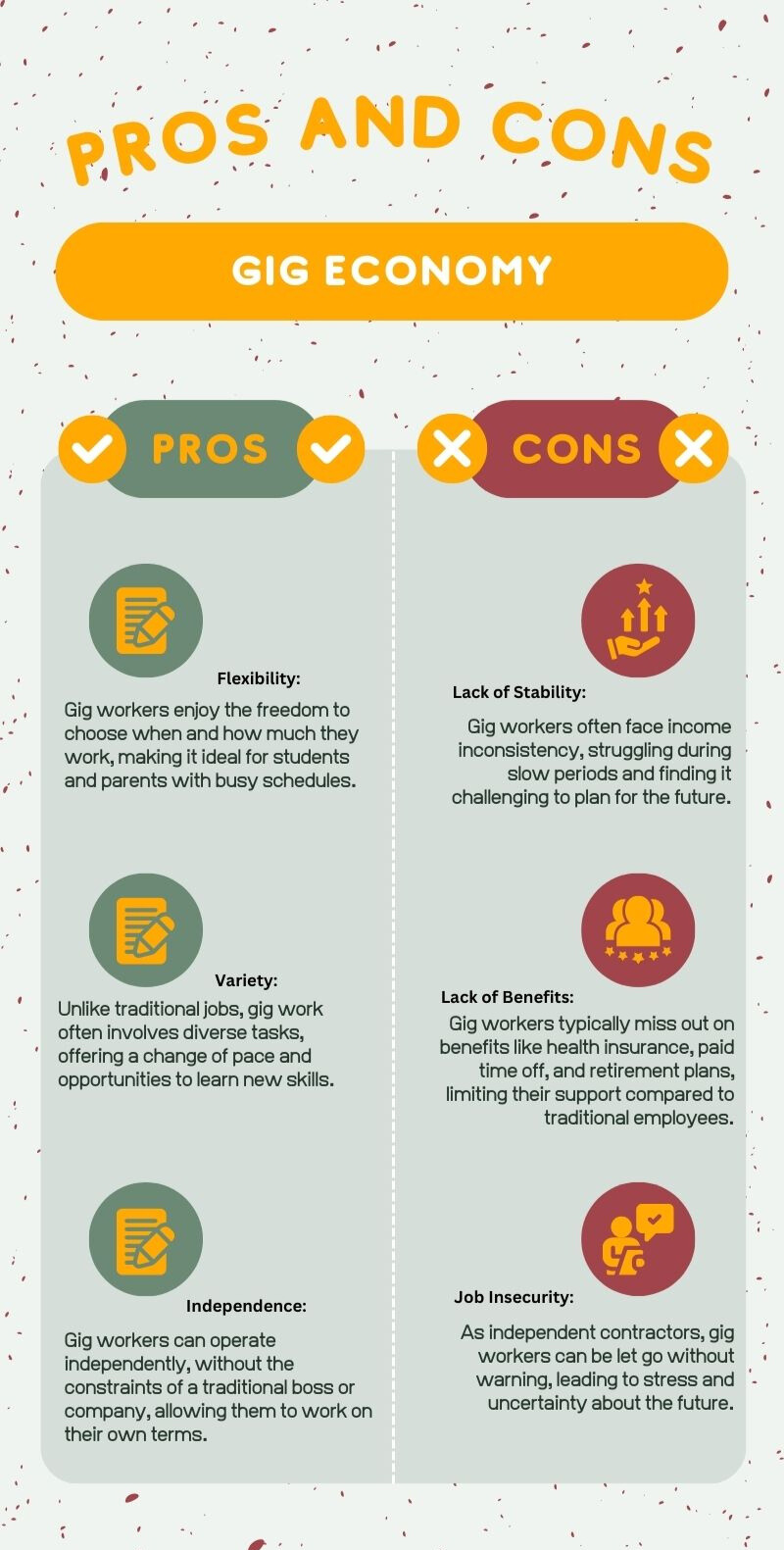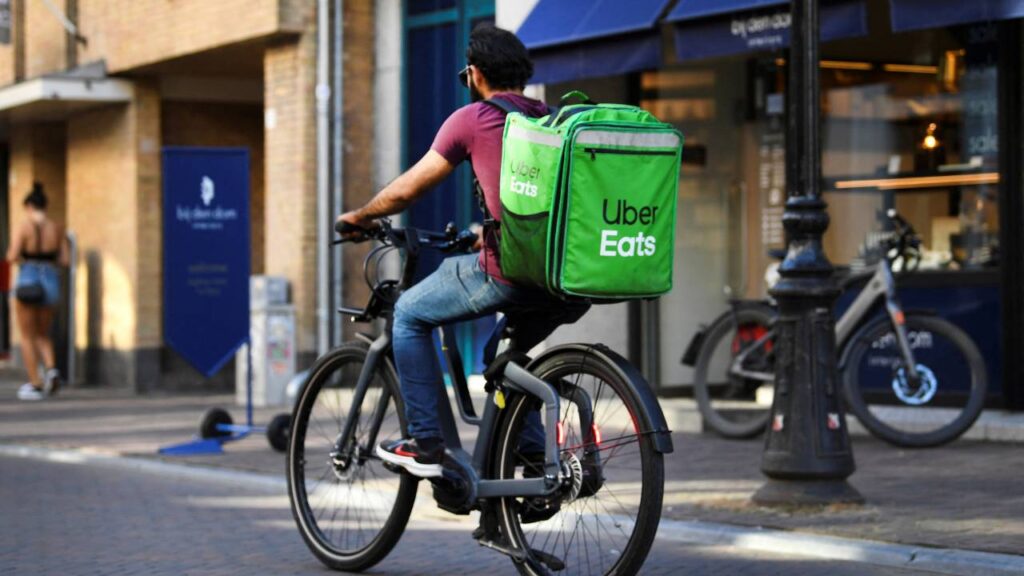Gig Economy and Underemployment
In today’s work landscape, many folks are exploring gig work to make ends meet, especially in the face of underemployment. The gig economy, defined by short-term contracts and freelance gigs, is both a source of flexibility and a potential challenge. Let’s break it down in simple terms:
1. What’s the Gig Economy and Underemployment?
- Gig Economy: It’s a job market with short-term gigs, like driving for Uber or freelancing.
- Underemployment: This happens when someone works below their skill level, part-time when they want full-time, or in a job not match their education or experience.
2. The Good Side of the Gig Economy: Flexibility and Autonomy
- Pros: You can set your own hours, choose your clients, and work from anywhere.
- Ideal for: People with caregiving duties, those pursuing other interests, or anyone not into the 9-to-5 routine.
3. The Challenges: Benefits, Protections, and Stability
- Cons: Gig workers miss out on benefits like health insurance, retirement plans, and paid time off.
- No Safety Net: Traditional employee protections, like minimum wage and overtime rules, often don’t apply.
4. The Unpredictable Nature of Gig Work
- Reality Check: Gig income can be up and down since you’re often paid per project. Planning for the future can be tricky.
5. Not a Magic Fix for Underemployment
- Reality Check: While gig work provides income, it doesn’t solve the bigger issue of a lack of good jobs.
- Personal Fit: Gig work might not suit everyone based on their skills, preferences, and situations.
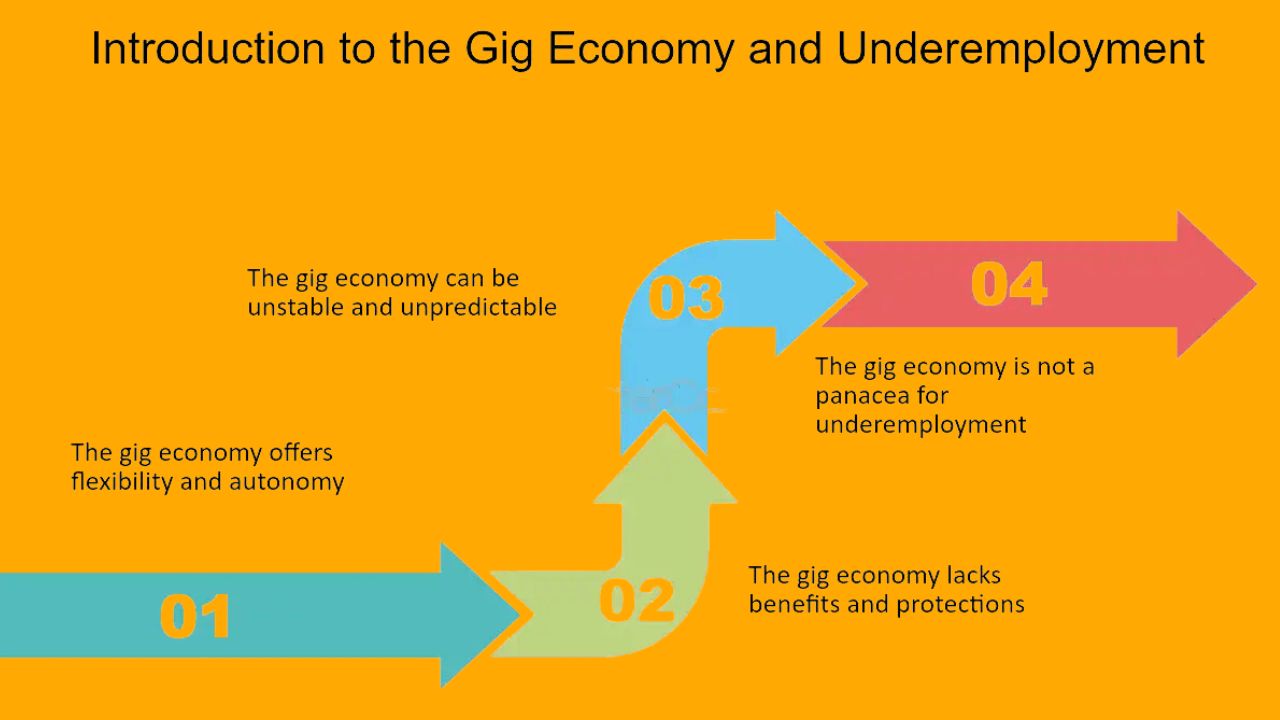
2. The Advantages of the Gig Economy
- Flexibility Boost:
- Gig workers enjoy freedom in choosing when and where to work.
- Imagine a freelance writer deciding to work early mornings or late nights based on their schedule.
- This flexibility also allows them to handle multiple projects simultaneously, balancing work and personal life.
- Creative Freedom:
- Unlike traditional jobs with fixed roles, gig work allows individuals to explore their creativity.
- For instance, a graphic designer can pick projects aligned with their artistic style.
- This not only makes work more satisfying but also often results in better-quality output.
- Earning Potential:
- Gig workers, like freelancers, can potentially earn more than those in traditional jobs.
- Being paid per project allows negotiation of rates, and skill development can lead to higher-paying opportunities.
- It’s a chance to turn skills into income and possibly discover new, profitable ones.
- Global Opportunities:
- Thanks to online platforms, gig workers can connect with clients worldwide.
- This opens doors to projects and collaborations that weren’t accessible before.
- Building relationships with clients globally can lead to more opportunities down the road.
- Diverse Experiences:
- The gig economy offers a variety of work experiences.
- Taking on projects from different clients allows workers to expand their skills.
- This diversity makes workers more versatile and appealing to a broader range of employers.
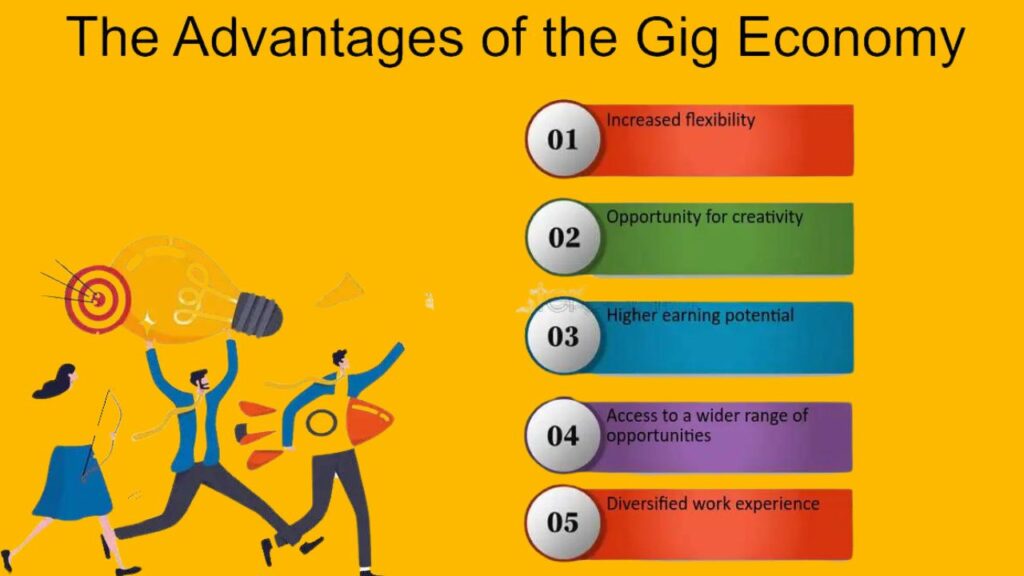
Read This Also: How Does Inflation Affect Overseas Education Loan?
The Impact of Technology on the Gig Economy
The gig economy, where people take on short-term jobs or freelance work, has seen a big influence from technology. Here’s a simple breakdown:
- Tech Makes Gig Work Easier to Access:
- Platforms like Uber and Lyft let anyone with a car become a driver.
- This means more people can join the gig economy.
- New Types of Gig Jobs Thanks to Tech:
- Platforms like Airbnb allow folks to rent out their rooms or homes to travelers.
- Technology has created gig opportunities that didn’t exist before.
- Tech Brings More Competition:
- Platforms like Upwork and Fiverr let people worldwide offer their services.
- Gig workers now compete with others globally, sometimes at lower rates.
- Constant Skill Updates Needed:
- Technology keeps changing, so gig workers must keep learning.
- For instance, a freelance writer might need to adapt to new writing styles on social media or blogs.
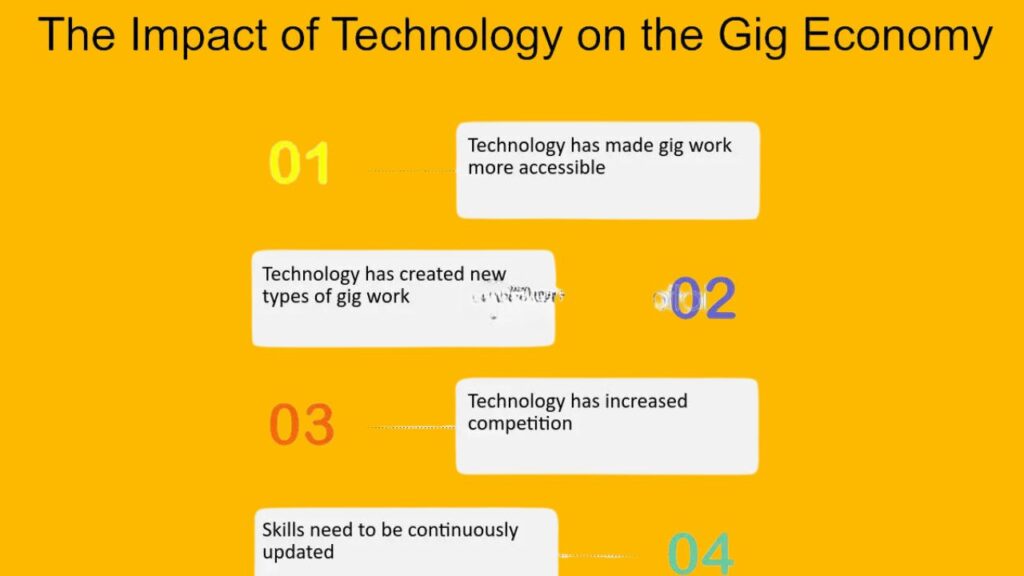
The Future of the Gig Economy
1. More Competition:
- What could happen: With more people joining the gig workforce, getting jobs might become tougher. This might make it harder for workers to earn a good living.
- Upside: On the flip side, it could push businesses to be more creative and offer better services to stand out.
2. Flexibility Rules:
- Benefit: Gig work lets people choose when, where, and how much they work. This flexibility is not just good for workers but also for businesses. They can adjust their workforce without the hassle of hiring or firing.
3. Rules and Regulations:
- Likely development: Governments might step in with more rules for the gig economy, like minimum wages and benefit requirements. Some say it’s to protect workers, but others worry it might put a damper on innovation.
4. New Business Ideas:
- Already happening: Companies like Uber and Airbnb are changing the game. Expect more creative businesses in the future as people figure out new ways to use the gig economy.
5. Taking Risks:
- High risk, high reward: Gig workers often face more uncertainty – no job security, benefits, or steady income. But some say the chance for higher pay and flexibility outweighs the risks.
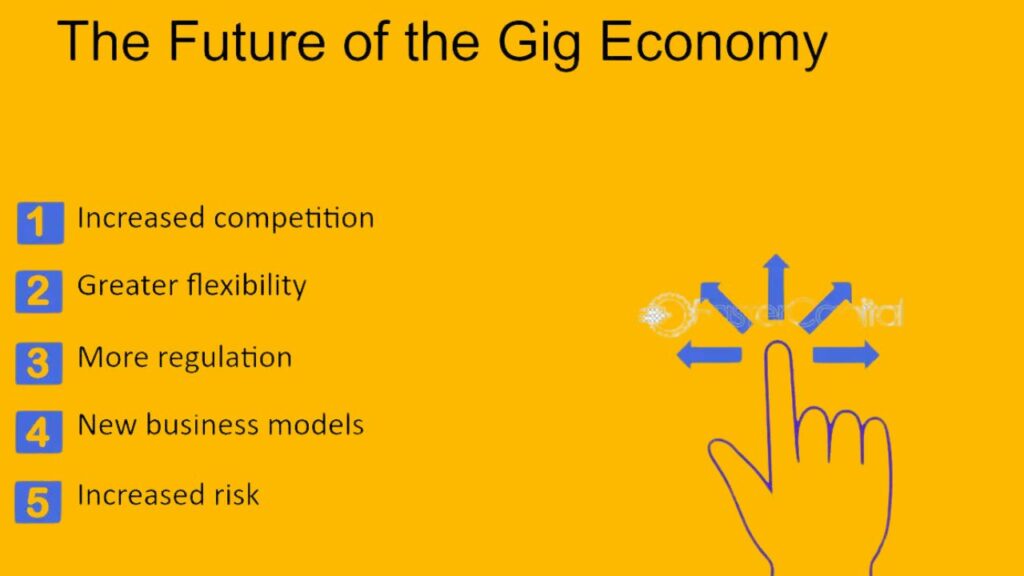
Pros and Cons of the Gig Economy
Pros:
- Flexibility: Gig workers enjoy the freedom to choose when and how much they work, making it ideal for students and parents with busy schedules.
- Variety: Unlike traditional jobs, gig work often involves diverse tasks, offering a change of pace and opportunities to learn new skills.
- Independence: Gig workers can operate independently, without the constraints of a traditional boss or company, allowing them to work on their own terms.
Cons:
- Lack of Stability: Gig workers often face income inconsistency, struggling during slow periods and finding it challenging to plan for the future.
- Lack of Benefits: Gig workers typically miss out on benefits like health insurance, paid time off, and retirement plans, limiting their support compared to traditional employees.
- Job Insecurity: As independent contractors, gig workers can be let go without warning, leading to stress and uncertainty about the future.
